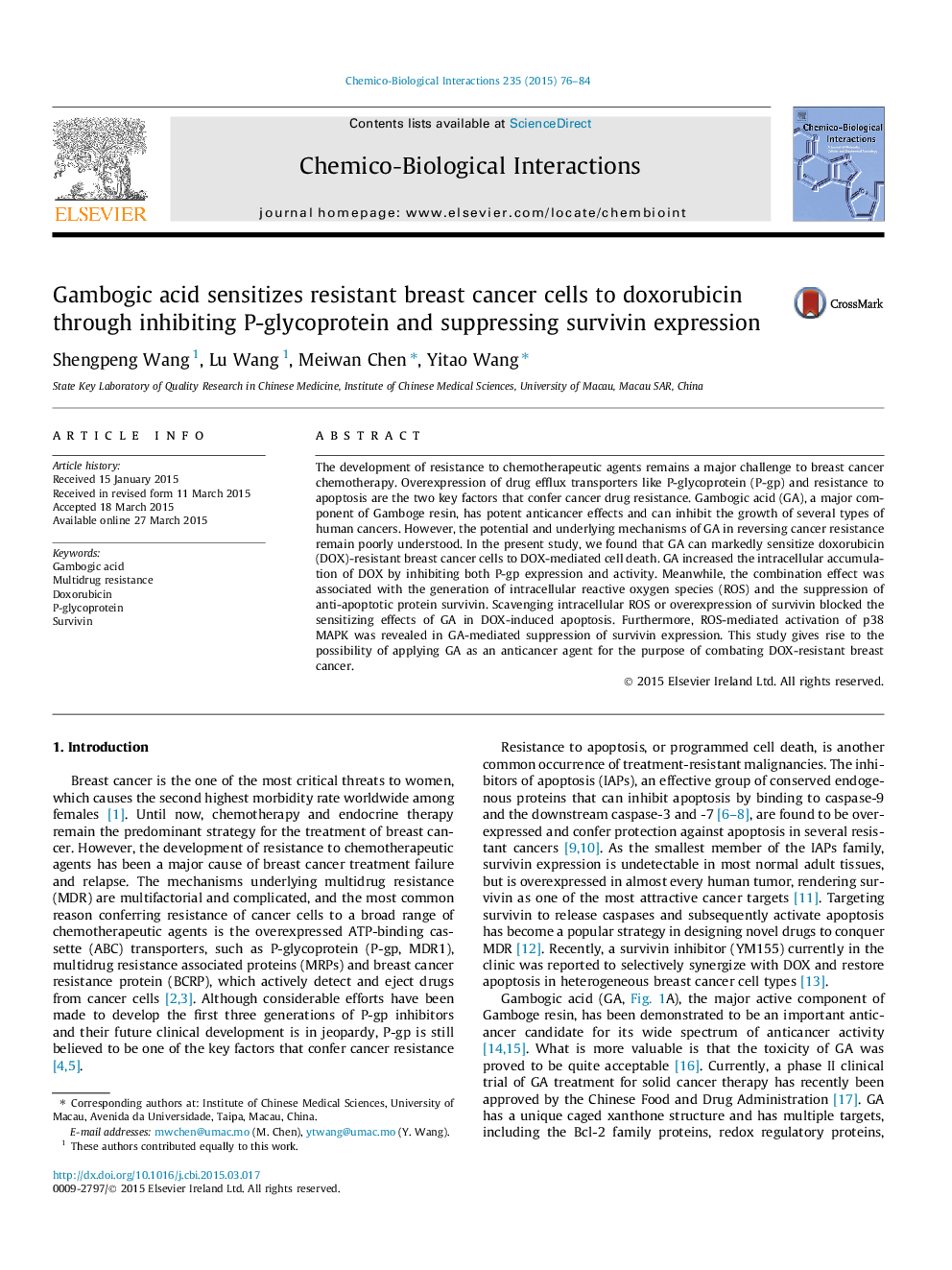| Article ID | Journal | Published Year | Pages | File Type |
|---|---|---|---|---|
| 2580157 | Chemico-Biological Interactions | 2015 | 9 Pages |
•GA sensitizes DOX-resistant breast cancer cells to DOX in a synergistic manner.•GA increases the intracellular accumulation of DOX through inhibiting both P-gp expression and activity.•DOX-sensitization by GA is associated with its effect on inhibiting survivin expression.•ROS-mediated activation of p38 MAPK is revealed in GA-mediated suppression of survivin expression.
The development of resistance to chemotherapeutic agents remains a major challenge to breast cancer chemotherapy. Overexpression of drug efflux transporters like P-glycoprotein (P-gp) and resistance to apoptosis are the two key factors that confer cancer drug resistance. Gambogic acid (GA), a major component of Gamboge resin, has potent anticancer effects and can inhibit the growth of several types of human cancers. However, the potential and underlying mechanisms of GA in reversing cancer resistance remain poorly understood. In the present study, we found that GA can markedly sensitize doxorubicin (DOX)-resistant breast cancer cells to DOX-mediated cell death. GA increased the intracellular accumulation of DOX by inhibiting both P-gp expression and activity. Meanwhile, the combination effect was associated with the generation of intracellular reactive oxygen species (ROS) and the suppression of anti-apoptotic protein survivin. Scavenging intracellular ROS or overexpression of survivin blocked the sensitizing effects of GA in DOX-induced apoptosis. Furthermore, ROS-mediated activation of p38 MAPK was revealed in GA-mediated suppression of survivin expression. This study gives rise to the possibility of applying GA as an anticancer agent for the purpose of combating DOX-resistant breast cancer.
